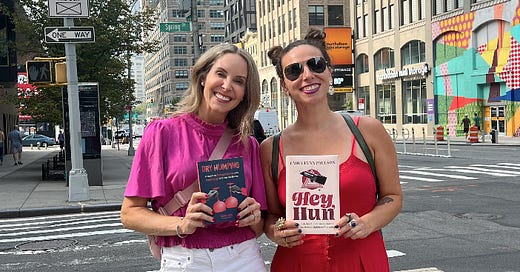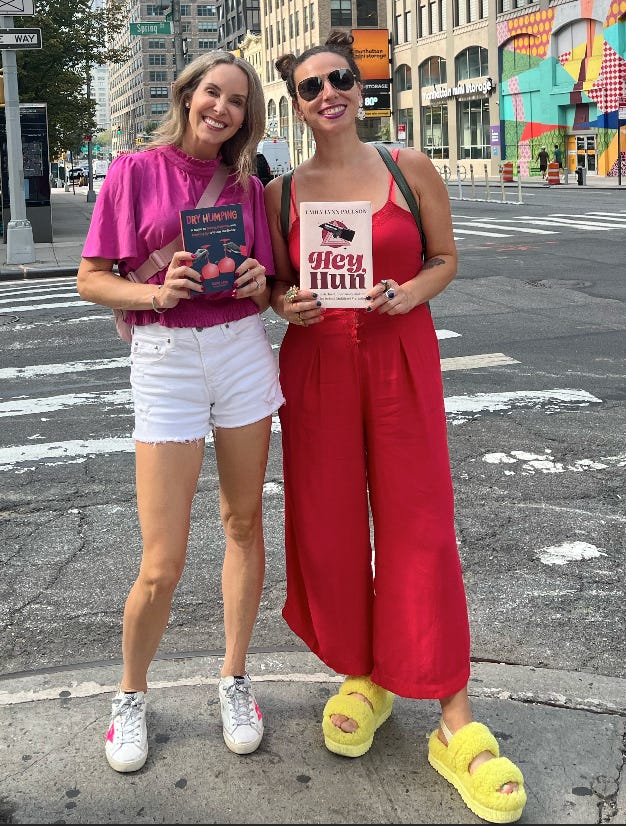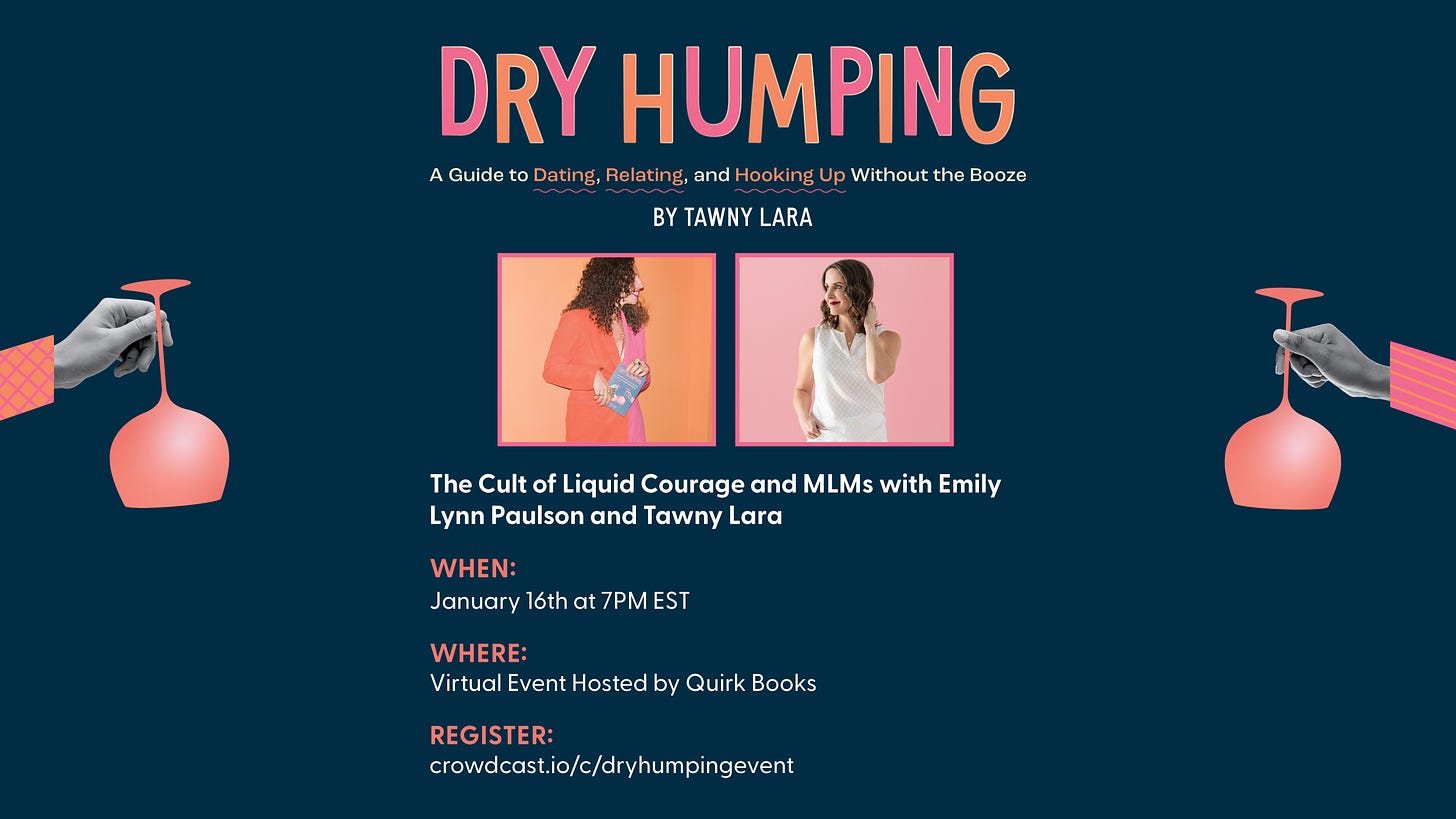FREE Virtual Event: MLMs and Liquid Courage
Join us on Jan. 16th while Emily Lynn Paulson and I spill the tea on our cringey pasts
Happy Hump Day! I’m Tawny, author of Dry Humping: A Guide to Dating, Relating, and Hooking Up Without the Booze, co-host of the Recovery Rocks podcast, and co-founder of the vinegar-based botanical beverage, (parentheses)
Before I was an author…
Before I got sober…
Before I moved to New York City…
I was a #bossbabe in an MLM. 🙈
I drank the Kool-aid and then poured pitchers for my friends and loved ones, whether they wanted it or not. I recruited downlines (people who sold products under me so I’d get a commission, and the people above me, my uplines, would also get commissions), promising people I could help them shrink their waistlines while simultaneously expanding their net worth.
The only reason I “succeeded” in my MLM journey is because I was also a Zumba instructor (yes, seriously). Fitness instructors who sell supplements often have a better success rate with MLMs because we’re used to public speaking, we have a following, and people buy what we sell. We were proto-influencers, if you will.
My Zumba students who also drank the MLM Kool-Aid lost weight because the cleanses and shakes and pills and powders were full of diuretics and laxatives. And we worked out… a lot. They lost money because the MLM system is designed that way. MLMs have a 99.7% fail rate. This means 99.7% of MLM reps don’t turn a profit.
Emily Lynn Paulson’s latest book, Hey Hun: Sales, Sisterhood, Supremacy, and the Others Lies Behind Multilevel Marketing, helped me make peace with my past as an MLM rep. I did a lot of dumb shit when I drank that I had to make peace with when I got sober. Hawking pseudo-supplements is one of the many past behaviors I’ve reckoned with.
Emily and I met in the online sober community and then quickly realized we shared a cringey history with MLMs, too. The MLM/liquid courage overlap is more prevalent than people may realize.
Both MLMs and liquid courage require a strong belief in something that is not real: a fantasy life. Liquid courage promises pseudo-confidence that turns out to be just bravado followed by a hangover. MLMs promise a fabulous new car or “retiring your husband” if you just sell more more more.
Ditching liquid courage and MLMs also requires reckoning with who we are when those beliefs are dismantled, when the cognitive dissonance finally becomes cognitive consonance.
On January 16th, we’ll discuss how the cult of liquid courage and MLMs stem from the same place: seeking something outside of ourselves, hoping that thing makes us happier. We relied on the fleeting dopamine hits of binge drinking and #bossbabe life only to learn that unsustainable lifestyle left us feeling even lonelier.
We’ll also share how we learned to foster healthy, authentic relationships both intimately and professionally—no liquid courage required.
See you on Tuesday!
-Tawny







What a great, needed topic of conversation, Tawny! Years before I got sober, I drank the Beautycounter Kool-Aid. Thankfully, because they don't require you to have an inventory (and because I stood firm against all the pressure to have one anyway), I didn't lose money and actually made a little money. But very little. And mostly, I feel shame around how I tried to sell everyone I know on joining (in no small part because my up-line was highly skilled at convincing everyone that's a great idea). I got out after I realized it wasn't paying off, didn't "feel like me," and was a distraction from work that I consider more personally meaningful.
Meanwhile, my sister is a hardcore Arbonne rep and has risen to district manager or something so is making money off of it and her down-line. But WOW did I learn the hard way to never, ever question Arbonne or their drink powders, etc., in her presence. The mere fact that I was drawn to Beautycounter, an Arbonne competitor, sparked fury that she's never really gotten over (even though that was years ago, I stopped doing Beautycounter years ago, never mentioned any of it again, etc.). It's wild, the hold that these companies can have on folks and their sense of identity.